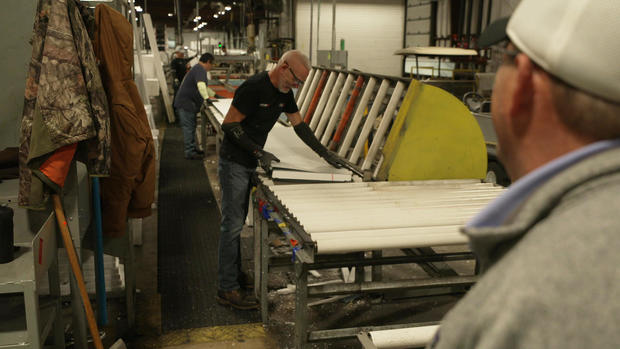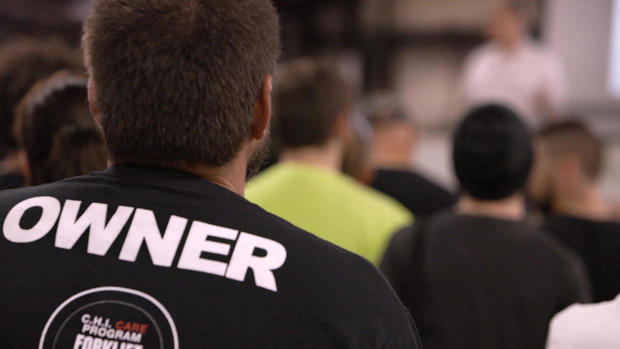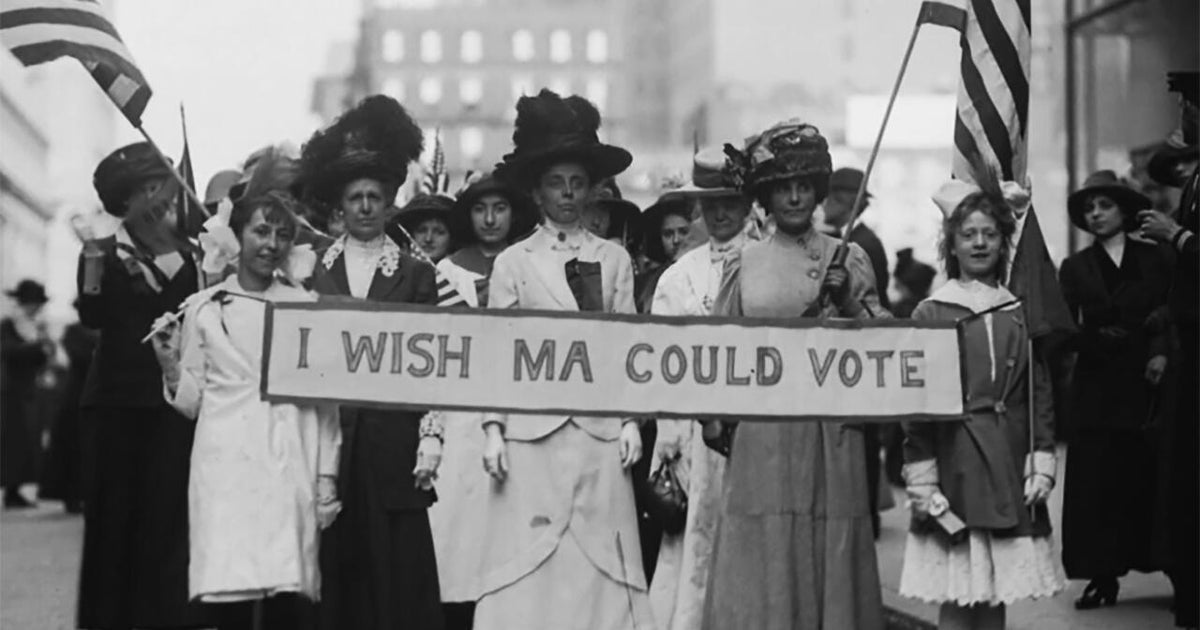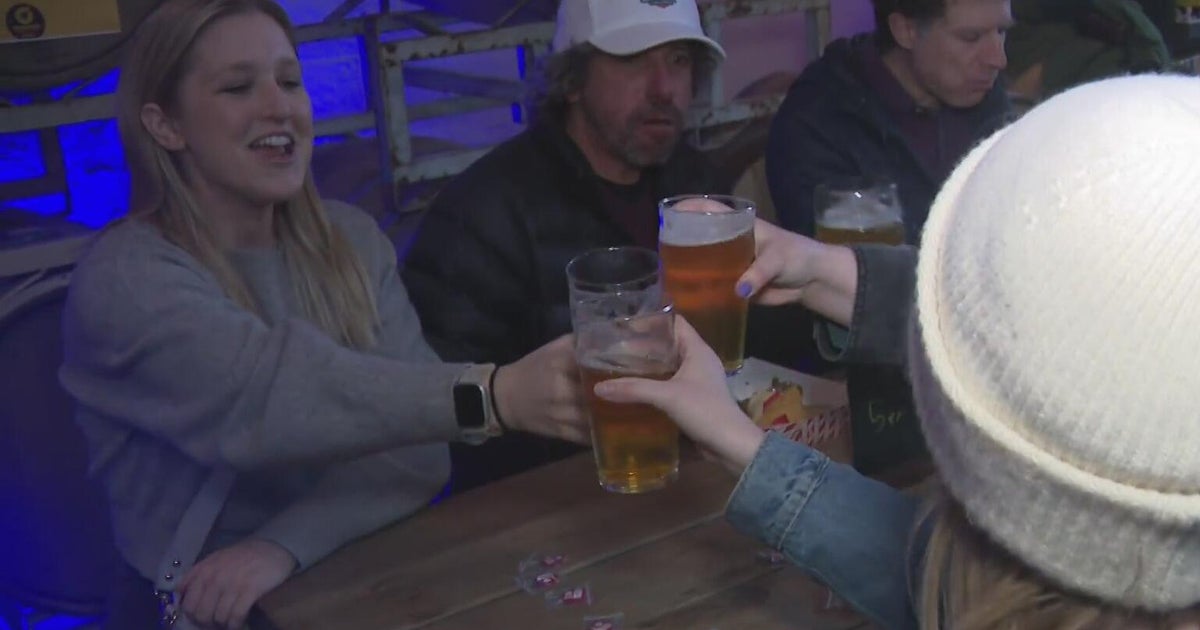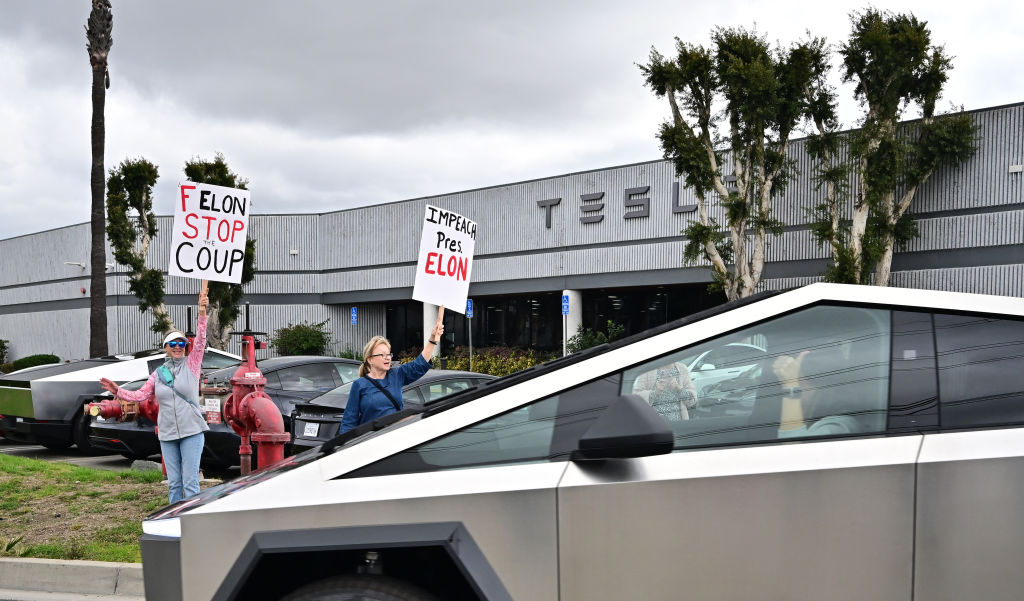A stake in success: Boosting profits via employee ownership
Life took a big turn last May for the employees of C.H.I. Overhead Doors, in the small town of Arthur, Illinois. Every employee was a co-owner of the company. They'd been told if the business sold at a profit, they'd all get a payday. Now, it was actually happening. "I'm just upfront, being all excited," said production manager Jim Hill. "Oh my gosh, like, we're talking life-changing money now!"
Hill, who joined the company in 2019, got two-and-a-half times his annual salary. "That was, 'Hey, Jim, like, it's easier to put your kids to college now!" he said.
The average payout was about $175,000. Long-time employees got even more – some six-and-a-half times their salary.
Josh Ryan, who works as an assembly line supervisor at C.H.I., said, "You've never seen people grab their phone to get their calculator out so fast! Wait a minute, I mean, $22 an hour times 40 hours a week times 52 weeks a year times four? Holy cow!"
Ryan works at C.H.I. along with his wife, Marquita Sanchez, and her mother, Elizabeth Garza. Sanchez said, "I was excited, but I was nervous at the same time, because I've never had that much money before."
Ryan said, "My nine-year-old just wanted to know if we could go to Disney."
And the answer? "Yes, we can go to Disney!" he laughed.
Seven years ago, all 800 factory employees at C.H.I. were given shares in the company by a surprising new owner: KKR, a private equity firm that buys, manages, and eventually sells companies aiming for a big return. The private equity industry has long had a reputation for layoffs and cost-cutting. But KKR partner Pete Stavros wants his industry to adopt a new model that gives every employee a small ownership stake. "I think it's a superior way to operate a business in every respect," he said. "It is better for workers, it's better for companies in corporate cultures, and in the end, it delivers better results."
So far, Stavros is overseeing seven ownership payouts.
Aubrey asked, "Are you telling me that what you're trying to do is to change the system entirely?"
"That's exactly what we're trying to do," Stavros replied.
"Sounds a little bit more like Bernie Sanders than a private equity executive."
"It always helps growing up in a family where your dad was a construction worker, so you understand both sides of it."
Watching Harry Stavros build roads for four decades is where his son saw a capitalist's opportunity. "My dad used to talk about the need to just work steady," said Stavros. "Not too fast, not too slow to get in trouble, but just steady."
"So, he was incentivized to be inefficient?" asked Aubrey.
"Absolutely. If you're an hourly worker, more hours means more pay."
But Stavros believes incentivizing workers will help the bottom line: "They will be more engaged on the job, less likely to quit, and it's going to lead to better performance for the company. So, productivity will go up."
But it wasn't all about ownership; employees needed a voice. As co-owners, workers at C.H.I. voted in air conditioning, a new cafeteria, and an on-site health clinic.
That philosophy is now being tested at Charter Next Generation, a plastics packaging company that KKR bought in 2021. Any potential payout for workers at the company (which makes films primarily used in food products) is still years away, and only if profits go up.
"We're going to have to figure out how to get employees to really understand how their day-to-day actions translate into long-term results," said CEO Kathy Bolhous. For example, Bolhous said, cutting scrap waste just 1% by increasing efficiencies would bring ten million dollars in additional profit.
The collective pursuit of profit means problem-solving spans from the corner office to the factory floor. When asked who owns the company, Charles Marlow, a plant training coordinator, proudly said, "We own this company."
And he has a certificate to show his ownership of 3,730 shares. Shares are tied to each employee's position and years on the job. If profits go up, so, too, does the value of those shares, and the size of that potential payday.
"It's pretty cool, to be honest. I never would have thought that I would be an owner," said Marlow. "I wasn't supposed to be in the place that I'm in right now."
"What do you mean, not supposed to be?" asked Aubrey.
"Born into poverty. There was no home-cooked meals; it was Doritos and beef jerky. Getting that certificate, I'm finally on the in."
In 2021 Pete Stavros created a nonprofit called Ownership Works, to expand this model across the industry.
Aubrey asked, "You think this would chip away at the wealth gap?"
"This will help," Stavros replied. "Is it going to solve all our problems? Absolutely not. But it's a step in the right direction."
Private equity will still keep the lion's share of profits of any sale, but for the almost 12 million Americans who work for private equity-owned companies, it could mean billions in wealth.
Just ask the employees back in Arthur, Illinois, like Josh Ryan: "I mean, I probably got more than my fair share. And the truth is, companies are bought and sold every day in the United States. And guys like me, and ladies like [my wife and her mom], don't get any of the money."
The payday for most workers wasn't enough to retire. But for Jim Hill and so many others, it's bought some financial peace-of-mind. "I got three kids, a house, cars, my wife that loves me. You know, I've got everything I've ever wanted in life. So, that's the American Dream," he said. "My sweat equity paid off a hundredfold. So, I can't put that into words, just smiles."
For more info:
Story produced by Dustin Stephens. Editor: Joseph Frandino.
See also:
- How Rust Belt company towns evolve in the age of e-commerce ("Sunday Morning")
- The resurgence of unions and the fight against Amazon ("Sunday Morning")
